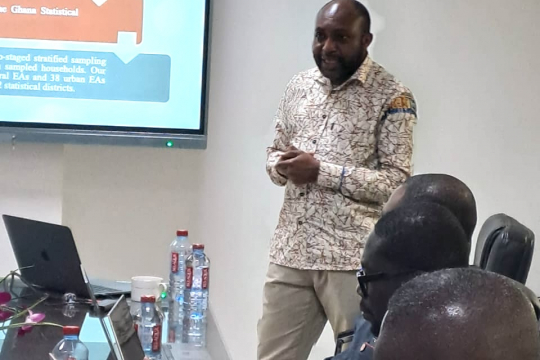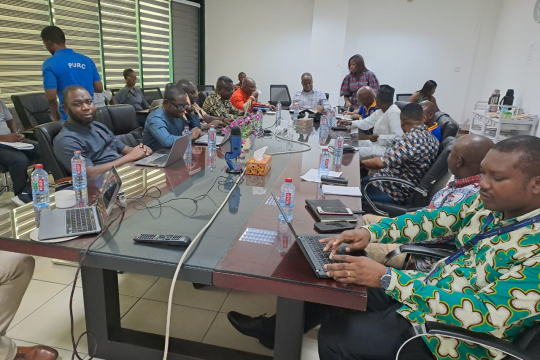A recent study has evaluated the welfare changes given a partial cross-subsidy reversal of electricity tariffs implemented in Ghana. The preliminary results were presented in a workshop in May.
The researchers found a reduction in welfare for all customers, both residential (households) and non-residential, at the given level of reversal. However, an extension of the research revealed that an increase in the reversed cross-subsidy increased the welfare of non-residential customers, while residential customers saw a strong reduction in welfare. A welfare gain indicates more available money due to policy implementation (reversal of cross-subsidies), while a decrease in available money indicates a welfare loss.
Will inform future policy decisions
Amin Karimu from the University of Cape Town and Jabir Mohammed from the University of Ghana collaborated with the Public Utility Regulatory Commission (PURC) of Ghana to perform a project to evaluate a partial reversal of the cross-subsidization of electricity tariffs that exists within Ghana. Historically Ghana saw residential customers pay less than the true value of electricity, while non-residential customers paid more than the true value of electricity, meaning non-residential customers subsidized residential customers. The policy decision removed close to 36 percent of the cross-subsidies from the non-residential customers, reducing non-residential electricity costs, while increasing residential electricity costs. The tariff policy was implemented in September 2022. The goal of the project was to examine the impact on the welfare of both residential and non-residential customers. Further, they were tasked with assessing the likely welfare impact of different reversal rates to inform future decisions on the reversal policy.
Aims to find fair tariff system
This policy change is a part of a broader strategy by PURC to create a fair and sustainable tariff system. There has been a re-categorization of the tariff bands, and quarterly reviews of the tariffs to adjust prices following macroeconomic factors. Additionally, the lifeline tariff band has been shifted to better support economically disadvantaged households.
In a workshop that was held on 10 May 2024, the findings were presented. Participants who attended the workshop were from the Electricity Company of Ghana (electricity distribution company for the Southern sector), the Northern Electricity Distribution Company (electricity distribution company for the Northern sector), the Energy Commission (the technical regulator of energy in Ghana), the Ministry of Energy, and PURC.
Small firms gain the most
The findings indicate a loss of welfare for both groups of customers under the 36 percent partial reversal policy. A loss of about 2.3 percent and 0.13 percent of the average monthly electricity budget by residential and non-residential customers, respectively. However, hypothetically scaling the reversal rate to 70 and 100 percent results in significant welfare gains for non-residential customers, and significant welfare losses for residential customers. Micro-sized firms would gain the most, with savings of up to 10.7 percent of their electricity budget at 100 percent reversal. High-income households would suffer the most, with losses of up to 8.6% of their electricity budget at a 100 percent reversal.
While there are net welfare gains under the 70 and 100 percent reversal rates, the challenge is how to redistribute the positive gains to those losing from the reversal. The project team is actively working on this issue to further enhance the policy advice from the research. Discussions from the participants in the workshop highlight some of the challenges in the electricity sector including the political economy aspects that should be considered in the implementation of incremental reversal rates towards a full reversal, while accommodating lifeline customers.
For more details on PURC’s initiatives, visit PURC Ghana.
Josh Gray

